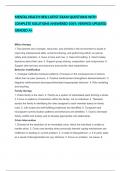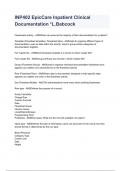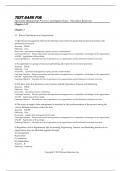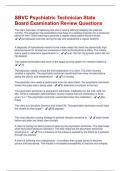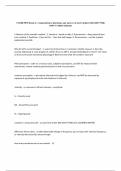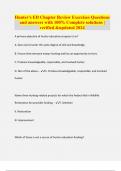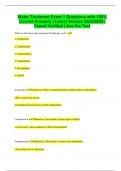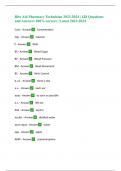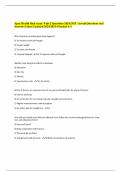Exam (elaborations)
MENTAL HEALTH HESI LATEST EXAM QUESTIONS WITH COMPLETE SOLUTIONS ANSWERED 100% VERIFIED UPDATED GRADED A+
- Course
- Institution
MENTAL HEALTH HESI LATEST EXAM QUESTIONS WITH COMPLETE SOLUTIONS ANSWERED 100% VERIFIED UPDATED GRADED A+ Milieu therapy 1.The planned use of people, resources, and activities in the environment to assist in improving interpersonal skills, social functioning, and performing ADLS, as well as s...
[Show more]
